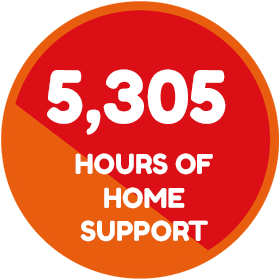Talking to the parents or family of a child with a serious illness can be nerve-racking and uncomfortable. How do you know what to say? What if you say the wrong thing? Sometimes avoiding the family can seem easier than facing a difficult situation.
Jayne Abbott, a Family Support Worker with Rainbow Trust in Swindon, helps families to maintain close contact with their family and friends even in the midst of a crisis. She says it’s common for parents to stop spending time with friends or extended family when a child is ill, even though they need their friends more than ever and may need to return to that support network after a child’s death. So it is very important for friends to make the effort to reach out.
“There’s no need to worry about saying the ‘right’ thing, it’s just about being there, just having that support system. Let the parent talk without offering advice or anything else. “Try to be positive for the parent,” she suggests. “It’s about listening skills. Let them talk. This will help you to empathise and understand the whole situation that the family finds themselves in.”
There’s no need to worry about saying the ‘right’ thing, but Jayne recommends making yourself available to listen whenever a parent or sibling needs it. “It’s just about you being there, and them having that support system. Let the parent talk without offering advice or anything else,” she explains.
“Tt’s just about you being there, and them having that support system. Let the parent talk without offering advice or anything else,”
There are some basic rules about what not to say. Jayne warns against suggesting that you know how a family is feeling, even if you’ve been through something similar, or saying that you know the child will get better. “That’s giving them false hope,” she says. “But if someone knows that there is somebody there, that they can pick the phone up to and have a conversation with on their own terms, this can really help.”



